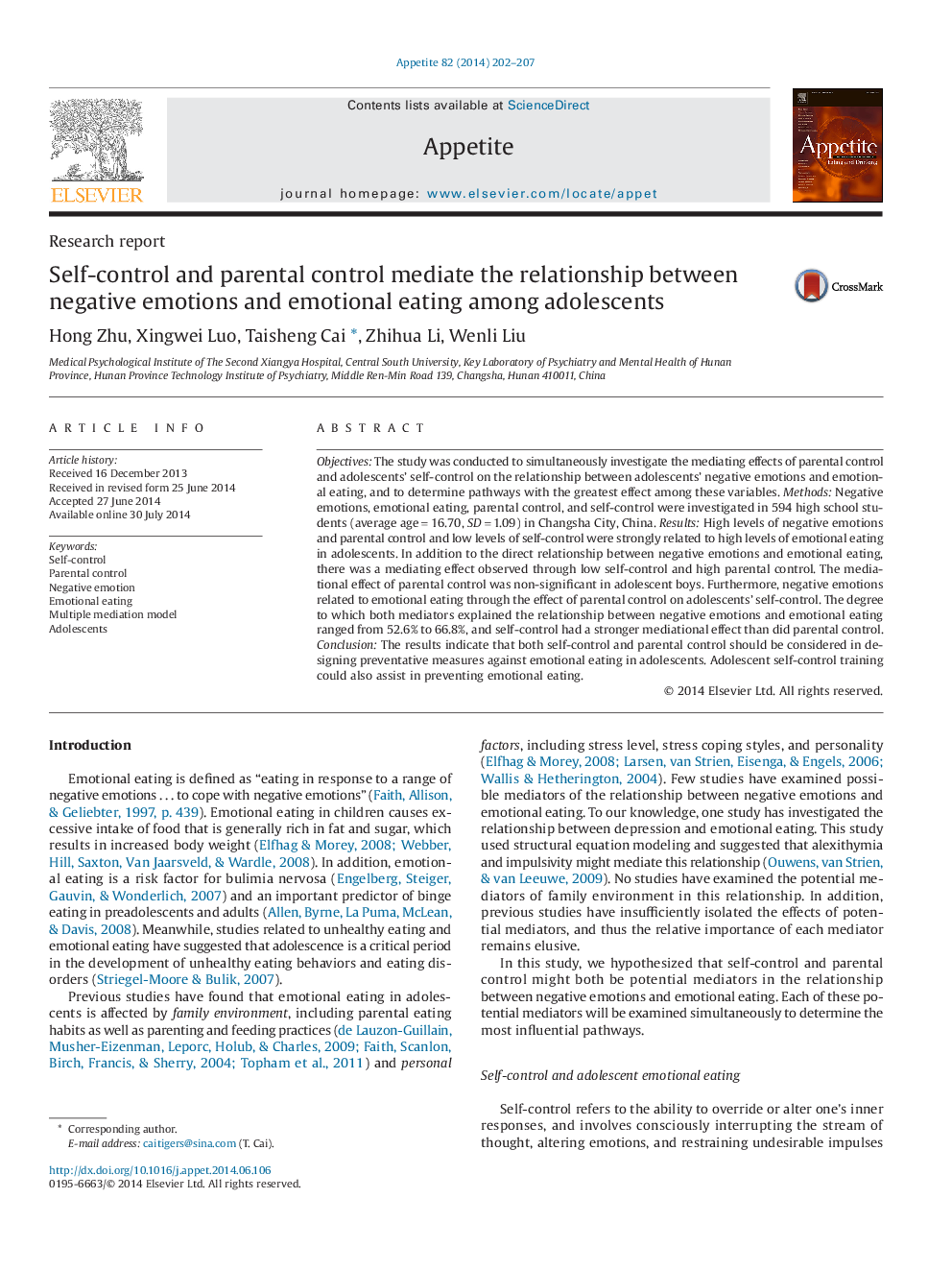| Article ID | Journal | Published Year | Pages | File Type |
|---|---|---|---|---|
| 939483 | Appetite | 2014 | 6 Pages |
•We studied negative emotions, emotional eating, parental control, and self-control.•Negative emotion was directly related to emotional eating.•Self-control and parental control mediated the relationship in females.•Self-control alone mediated the relationship in males.
Objectives: The study was conducted to simultaneously investigate the mediating effects of parental control and adolescents' self-control on the relationship between adolescents' negative emotions and emotional eating, and to determine pathways with the greatest effect among these variables. Methods: Negative emotions, emotional eating, parental control, and self-control were investigated in 594 high school students (average age = 16.70, SD = 1.09) in Changsha City, China. Results: High levels of negative emotions and parental control and low levels of self-control were strongly related to high levels of emotional eating in adolescents. In addition to the direct relationship between negative emotions and emotional eating, there was a mediating effect observed through low self-control and high parental control. The mediational effect of parental control was non-significant in adolescent boys. Furthermore, negative emotions related to emotional eating through the effect of parental control on adolescents' self-control. The degree to which both mediators explained the relationship between negative emotions and emotional eating ranged from 52.6% to 66.8%, and self-control had a stronger mediational effect than did parental control. Conclusion: The results indicate that both self-control and parental control should be considered in designing preventative measures against emotional eating in adolescents. Adolescent self-control training could also assist in preventing emotional eating.
